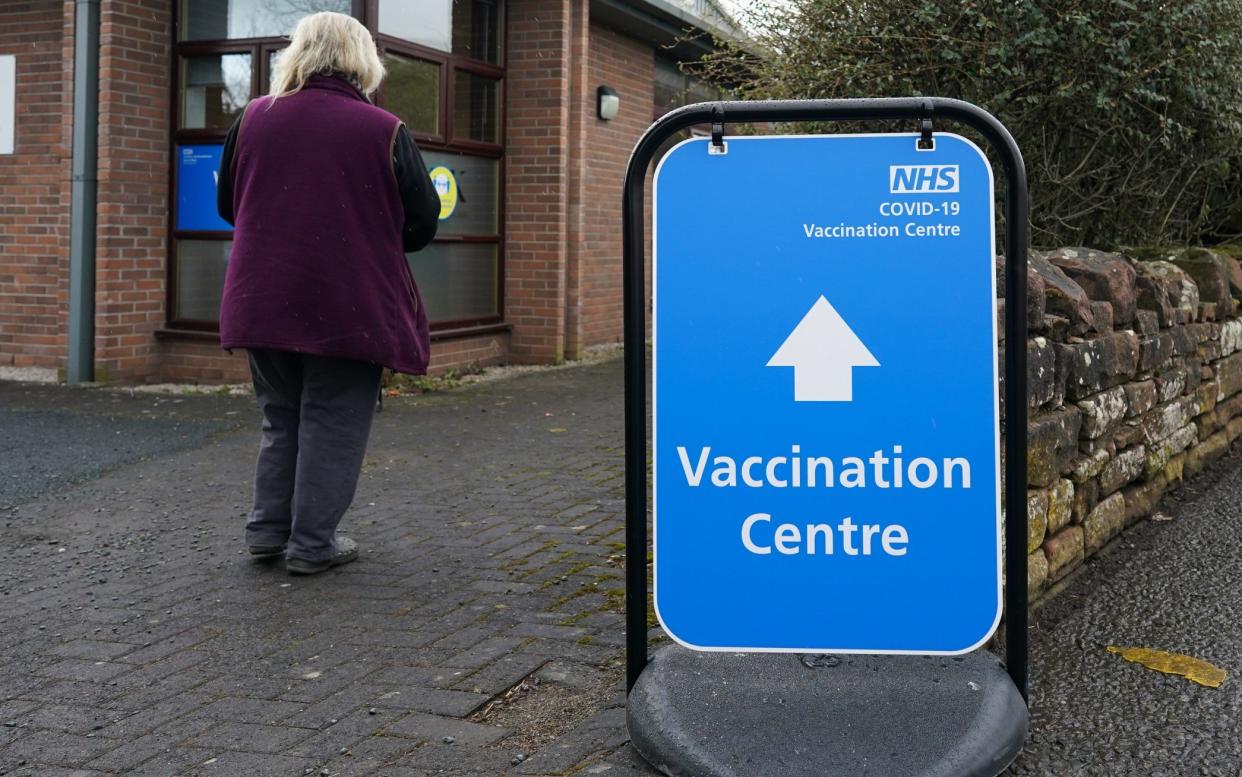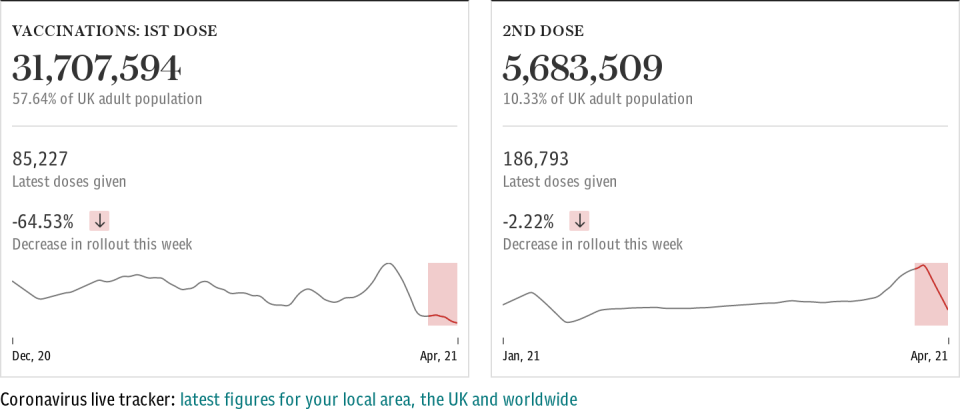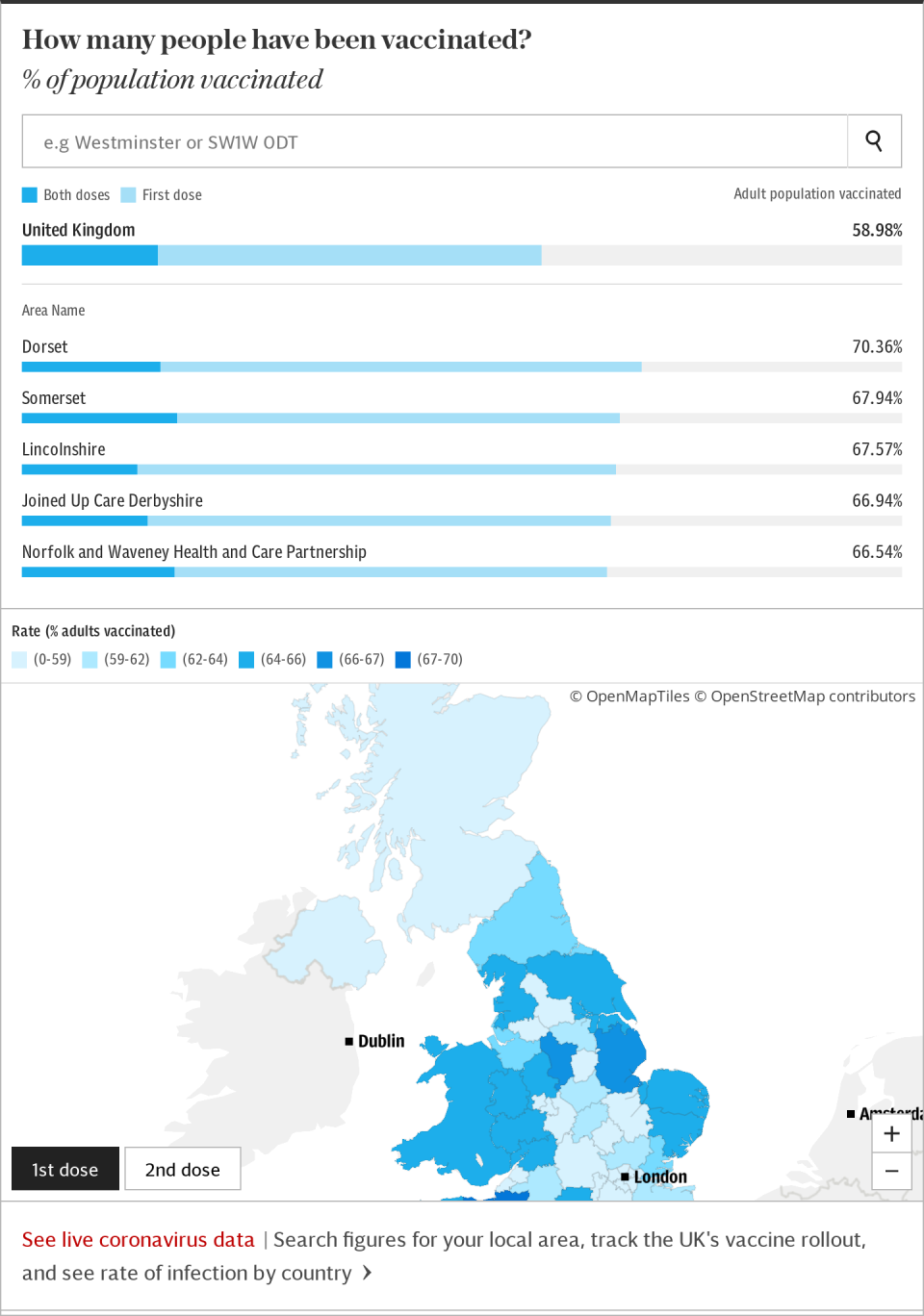Covid antibody levels fall in over-70s despite vaccine rollout as experts question data


The number of older people with coronavirus antibodies has fallen despite the ongoing vaccine rollout, according to the Office of National Statistics (ONS), leading experts to question whether the data could now be trusted.
On Wednesday, new figures from the ONS antibody swab survey showed that 54.9 per cent of people in private households in England were likely to have tested positive for Covid antibodies in the week to March 28 – largely unchanged since the middle of March.
During those two weeks, nearly seven million more people in the UK had their first dose of vaccine and millions of older people received a second jab which should have boosted immunity further.
Yet the new figures show that levels of antibodies have dropped by nearly 10 per cent in the over-70s during the period. The presence of antibodies suggests someone has had the virus in the past or has been vaccinated and is now protected, at least to some degree, against it.
The ONS said it was possible that antibody levels in some people are now too low to be detected by the tests but still high enough to grant a level of protection.

Experts called for the organisation to publish the underlying data on which the prevalence estimates are based and release details of the sensitivity of the antibody tests researchers are using.
Eleanor Riley, professor of immunology and infectious disease at the University of Edinburgh, said: "One would expect that antibody positivity rates in the population would increase steadily over time as the proportion of the population that has ever been infected increases.
"Now that a large percentage of the adult population have been vaccinated, we would expect positivity rates to be increasing rapidly. However, what we saw in these data prior to vaccine rollout was that antibody positivity rates scarcely increased over time, increasing a little in the immediate aftermath of an increase in cases but then falling again as cases fell.
"Now, when the vaccine rollout is in full swing, positivity rates are barely above vaccination rates, suggesting that the tests are missing a lot of people who have been infected but not vaccinated.
"All in all, this suggests that the antibodies that are being measured are not very long-lasting. It is not clear to me why this is the case as other studies, including a recent PHE study, suggest that antibodies persist for many months."
However the ONS said sensitivity data was readily available for checking and warned that antibody studies which showed persistance were based on previous infections, not vaccinations.
A spokesperson for the ONS said: “We have carefully considered the sensitivity of the test we use for antibody detection and made the details readily available, along with the data underpinning the analysis.
"Other studies looking at the length of antibody retention have looked at antibodies produced in response to natural infection by Covid-19, not vaccination, and consider a shorter time frame than our study.
"As can be seen from our data, we began to see a decline in antibody positivity in older age groups, but this group has now seen a small increase in positivity in the latest data, reflecting that many in these age groups have now begun to receive their second dose. We will continue to monitor antibody positivity and provide accurate and robust analysis."

Kevin McConway, emeritus professor of applied statistics at the Open University, also warned that the tests would miss T-cell immunity, which may be offering protection.
"It's not possible to say definitely from these results how close we might be to a level of immunity that will keep infections strongly in check," he said. "That doesn't mean that these results aren't important – they surely are, they just aren't the whole story."
A separate study released by the University of Birmingham on Wednesday found that antibodies were present in 93 per cent of over-80s vaccinated with the Pfizer jab and 87 per cent with the AstraZeneca vaccine, five weeks after the first dose. T-cell responses were also seen in 31 per cent of the AstraZeneca group.
Dr Helen Parry, a National Institute for Health Research academic clinical lecturer at the University of Birmingham and first author on the study, said: "These antibody responses are very encouraging as they back up the strong real-world data we are seeing in the UK."
The research, the first to directly compare antibody and cellular (T-cell) immune responses between different Covid vaccines, involved 165 people aged between 80 and 99.

